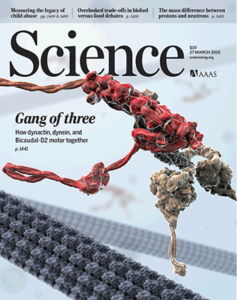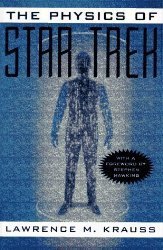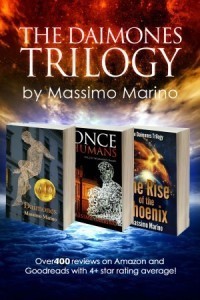The Science in Science Fiction

Illustration: Chris Bickel/Science
Each year, the prestigious journal Science lists the best scientific discoveries, drawing up a separate ranking. The editors of the magazine cast their eyes to the future, indicating the areas of greatest scientific interest in the coming years.
According to Science, what expects us will have to wait for the “scientific satisfactions” from experiments, large and small, that take place at the Large Hadron Collider (Large Hadron Collider, abbreviated LHC) in Geneva; or the work to analyze on genes that help organisms to adapt to a changing world; studies that are taking place in California, at the Lawrence Livermore Laboratory, on the nuclear fusion; from research on strengthening the immune system; from research on a vaccine against malaria.
Some of these issues are already the subject of speculation by the writers of science fiction and the predictions of Science give us the opportunity to speak of the relationship between science and science fiction. The words of the mathematician and astrophysicist Stephen Hawking say best: “science fiction today is often tomorrow’s science.”
We could draw a map of the relationships between scientific knowledge and science fiction, not to prove whether the science used in science fiction was true, or to prove the opposite, but namely that good science fiction is often plausible and realistic. Rather, we could indeed show how one can be seen as the mirror of the other and the many itineraries from the “real” to the “speculative fiction”, ofter also in the opposite direction.
To clarify the concept, once more we call Hawking to rescue. In the preface to the essay Physics of Star Trek by Krauss, Lawrence M. [Basic Books,2007] , he writes: “The science fiction like Star Trek it’s just a lot of fun, but also serves a serious purpose, which is to expand the human imagination. We are not yet able to boldly go where no one has gone before, but at least we can do it mentally. We explore how the human spirit can respond to future developments in science and we can speculate on how these developments could be. Between science fiction and science there are exchanges in both directions.”
, he writes: “The science fiction like Star Trek it’s just a lot of fun, but also serves a serious purpose, which is to expand the human imagination. We are not yet able to boldly go where no one has gone before, but at least we can do it mentally. We explore how the human spirit can respond to future developments in science and we can speculate on how these developments could be. Between science fiction and science there are exchanges in both directions.”

 I like best the predictions Asimov provided us in his novels, but Hawking centers the question. Science fiction is not, and should not be mistaken for, futurology. Science fiction is not a literature that predicts the future, but is a literature that bears a scientific point of view of all possible futures. It happens, of course, that a writer is able to predict a certain invention or scientific discovery, but when it happens it is a lucky shot, especially if it is not based on what are the current scientific knowledge and what can be their evolutions. Jules Verne, in this, was a master. It helps, as with Asimov, if the writer has a solid scientific background.
I like best the predictions Asimov provided us in his novels, but Hawking centers the question. Science fiction is not, and should not be mistaken for, futurology. Science fiction is not a literature that predicts the future, but is a literature that bears a scientific point of view of all possible futures. It happens, of course, that a writer is able to predict a certain invention or scientific discovery, but when it happens it is a lucky shot, especially if it is not based on what are the current scientific knowledge and what can be their evolutions. Jules Verne, in this, was a master. It helps, as with Asimov, if the writer has a solid scientific background.
What science fiction should do — and it performs admirably to the task — is to stimulate the reader to change, to ask questions rather than give answers, about our future, the developments of science, and its implications. There is no science fiction if the story is not there because of the scientific element and its impact in the society.
To expand — as Hawking says — the human imagination and figure out how we can react to changes brought about by the development of new technologies or scientific discoveries is something exceptional.
Massimo Marino is a scientist envisioning science fiction. He spent years at CERN and The Lawrence Berkeley Lab followed by lead positions with Apple, Inc. and the World Economic Forum. He is also co-founder of “Squares on Blue”, a Big Data Analytics service company.
Massimo currently lives in France and crosses the border with Switzerland multiple times daily, although he is no smuggler.
As a scientist writing science fiction, he went from smashing particles at accelerators at SLAC and CERN to smashing words on a computer screen.
He’s the author of multi-awarded Daimones Trilogy.
His novels have received the Seal of Excellency from both AwesomeIndies.net and IndiePENdents.org
• 2012 PRG Reviewer’s Choice Award Winner in Science Fiction
• 2013 Hall of Fame – Best in Science Fiction, Quality Reads UK Book Club
• 2013 PRG Reviewer’s Choice Award Winner in Science Fiction Series
• 2014 Finalist – Science Fiction – Indie Excellence Awards L.A.
• 2014 Award Winner – Science Fiction Honorable Mention – Readers’ Favorite Annual Awards
His novels are available from Amazon, Barnes & Noble (Nook), iTunes Apple Store, and many other retailers around the world.
Join his mailing list for new releases, or follow him on Facebook, Google+, and Twitter.
The post The Science in Science Fiction appeared first on § Author Massimo Marino.




